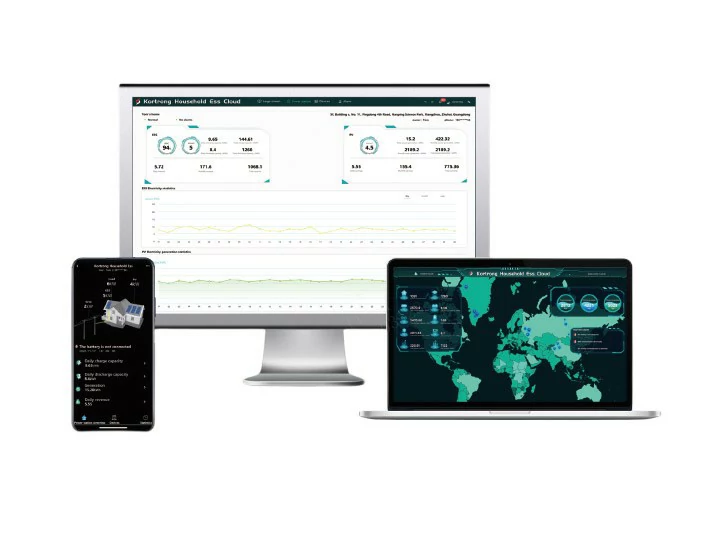Silicone rubber: the ideal material for battery sealing rings With...
Distributed Battery Management System (BMS)
With the widespread use of renewable energy, the development of energy storage technology, and the popularity of electric vehicles, Battery Management systems (BMS) are becoming increasingly important. In particular, distributed BMS, as a relatively advanced battery management scheme, has been widely concerned because of its unique structure and many advantages. This paper will give a comprehensive introduction to the working principle, characteristics, advantages and disadvantages, and application scenarios of distributed BMS.
What is Distributed BMS?
Distributed BMS is a system architecture that distributes battery management functions across multiple control units. These control units are usually distributed across the various cells of the battery pack and can independently monitor and manage the status of each cell. Compared with centralized BMS, distributed BMS is more suitable for large-scale battery systems, especially in application scenarios with high performance requirements and complex data processing.
the working principle
Data collection
Each battery unit is equipped with an independent monitoring module, which can collect the voltage, current and temperature data of the battery in real time. This data is transmitted over the network to the main control unit or other processing modules.
Status assessment
The master control unit or each distributed node will analyze the collected data to evaluate the state of charge (SOC), health state (SOH) and other important indicators of each battery unit.
Fault detection and protection
While monitoring the battery unit, the distributed BMS also has the fault detection function, which can detect abnormal conditions in time, such as overcharge, overdischarge, high temperature, short circuit, etc., and make corresponding protective measures to ensure the safe operation of the battery.
Balanced management
Distributed BMS enables finer charge balance management between battery cells. Through active equalization technology, the charging status of individual battery cells can be adjusted in real time to ensure the overall performance and life of the battery pack.
Communication function
Distributed BMS usually uses efficient communication protocols (such as CAN, RS-485, LIN, etc.) to support real-time communication and data sharing between each unit of the distributed structure.
Advantages of distributed BMS
Distributed BMS is superior to traditional centralized BMS in many aspects, mainly reflected in the following aspects:
Strong scalability:
The design of distributed BMS allows it to be easily scaled up for large-scale battery systems. Each control unit can be flexibly added as required.
Accurate monitoring:
Each cell can be monitored independently, and the distributed BMS provides a more accurate assessment of battery status to ensure optimal operation of each cell.
Improve system reliability:
Distributed architecture reduces the risk of a single point of failure because each part of the system can work independently, and even if one unit fails, the other units continue to function properly.
Effective energy management:
Distributed BMS can achieve more efficient energy management during the battery pack charging and discharging process through active equalization control technology, improving the overall performance and life of the battery.
Disadvantages of distributed BMS
Despite the many advantages of distributed BMS, there are some limitations, mainly including:
System complexity:
The design and implementation of distributed BMS systems are complex and require technical support and engineering capabilities, which may increase equipment costs and development cycles.
High communication requirements:
Each distributed node needs to exchange data frequently, which puts forward higher requirements for real-time and reliability of communication.
Certain cost increases:
Since more hardware components (such as sensors, processors, etc.) are required structurally, the initial investment and maintenance costs of distributed BMS can be high.
Application Scenarios
Electric vehicles
In large-scale battery systems such as electric vehicles and electric buses, distributed BMS can provide a more accurate and reliable battery management solution.
energy storage system
In large-scale battery systems such as electric vehicles and electric buses, distributed BMS can provide a more accurate and reliable battery management solution.
Marine and Aviation Applications
In areas where safety, reliability and accuracy are highly required, such as Marine battery management and aviation applications such as drones, distributed BMS is ideal.
Large UPS system
For large uninterruptible power systems (UPS), distributed BMS can effectively improve the overall efficiency and safety of the system.
CONCLUSION
Distributed battery management system plays an indispensable role in the field of modern battery management, and has won wide application for its efficient monitoring, superior scalability and system reliability. Despite some complexity and cost issues, distributed BMS is still ideal for meeting high-performance battery management needs. With the advancement of technology, distributed BMS will continue to develop in many fields, improve the safety and efficiency of batteries, and help the promotion and application of new energy.

Home energy storage product series
A lithium battery pack for home energy storage systems, which is compatible with solar panels and the sun The inverter can work together with the power grid to power household appliances, and it can also be used as a For off grid systems.
Extended reading
EMS Basic Functions
EMS Basic Functions Real-time monitoring Status monitoring: real-time monitoring of...
What is the difference between dry single – pull process and dry double – pull process?
A highly integrated backup power solution for solar home energy...
THE ESSC Brand promise
Global supply
Our products sell well all over the world, covering many countries and regions, through the global logistics network, to provide customers with convenient purchasing experience.
Rigorous quality
We adhere to the highest quality control standards to ensure every product meets industry regulations and customer expectations, earning trust through consistent excellence.
Excellent service
With a customer-centric approach, we provide prompt responses, professional support, and personalized services, aiming to deliver the best user experience and long-term value.

